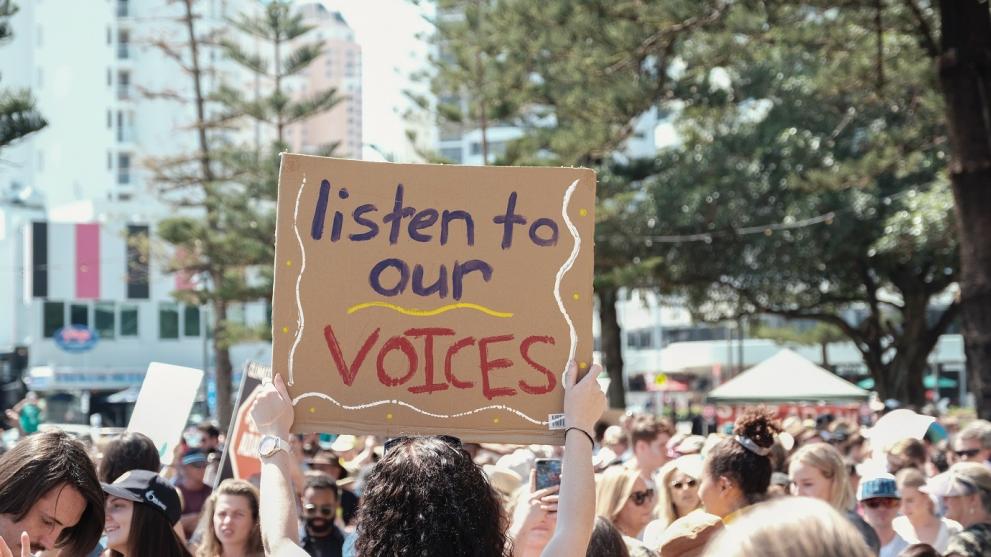
Young people lie at the cruel intersection of climate change catastrophe, spiralling rental costs, and energy price inflation. Gen Z are coming of age in an era of unprecedented turbulence in global markets and societies and approach these challenges in fundamentally different ways compared with their older counterparts. We can all learn from their proactive and open stance as the world grapples with intersecting crises, the resolution of which will undoubtedly define the future of our planet.
CLIMATE CONCERN
After jobs and employment, climate change is the second greatest concern of young Europeans looking to the future. Together with reducing pollution, making sure the fight against climate change is fair for all is the joint top priority of young people when considering their preferred approach to tackling this crisis. In this context, the spending habits of young people suggest a trend towards sustainability-driven purchases and greater concern for the ethical aspects of supply chains.
Moreover, a Eurobarometer study in 2022 revealed that 91% of 15-24 year-olds in Europe believe tackling climate change would help to improve their health and well-being. This should come as no surprise, since the existential threat posed by the deteriorating climatic situation appears to be considered much more imminent and significant by young generations, who see their future as intimately tied to that of an inhabitable planet.
RISING RENTAL AND ENERGY COSTS
Following the Russian invasion of Ukraine in February 2022 and resulting implications for wholesale gas markets, Europe’s policies on energy sources for heating have been brought into stark relief. Given that in 2021, 67% of energy consumption for space and water heating in the EU-27 was attributed to households, less than 25% of which was fuelled by renewable energy sources, the barriers to decarbonising Europe’s energy strategy have become a discussion point for many.
At the same time, young people face rapidly rising rental costs and are being progressively crowded-out of cities; in Barcelona the average monthly rent per square metre rose by 27.5% from 2020 to 2021. Added to energy costs and general inflation, students are being forced to return home after they graduate since they cannot afford to live independently. Naturally this limits the flexibility of this “boomerang generation” (those who return to live with their parents after leaving home) as they begin their career journeys, and the combination of financial worries together with perceived professional stagnation impacts their mental health.
Since 2021, the European Union has enshrined in law its commitment for the continent to become climate-neutral by 2050, a target first set in the 2019 European Green Deal. The REPowerEU strategy, which aims to eliminate Europe’s dependence on Russian fossil fuel supplies by 2030, set out a three-pronged approach: energy savings, diversification of energy supplies and the accelerated rollout of renewable energy. By August 2022, the bloc’s consumption of Russian natural gas had fallen from 44% to 17% compared with a year earlier, however this was a rushed transition driven by political turmoil rather than a conscious decision to improve the sustainability of the EU’s energy sources.
NEW APPROACH TO ENERGY SUPPLY CHAINS
If Europe is to deliver an energy system built on “long-term partnerships that are mutually beneficial”, one of the objectives of the REPowerEU Plan, then it would do well to pay attention to the holistic consumption attitudes of its youngest citizens. Without investment in home-grown R&D, a rapid increase in renewable technologies is accompanied by a significant risk of over-reliance on imported rare metals from countries such as China, which itself has a questionable human rights record and a political regime antagonistic to many fundamental European values. Taking a wider perspective and designing policies based on intersectional evaluations of entire supply chains is a tough demand, but one which must be heeded if future leaders are to be satisfied with the work of their predecessors.
Recommended links:
- Student climate champions around the world
- Not so “Green” Technology: the complicated legacy of rare earth mining
- Sustainability shopping habits of Gen Z
About the author:
Helena is completing a 12-month internship as Project Assistant at ThinkYoung before finishing her studies in International Relations, Economics and Geography at Durham University (UK). She is interested in what drives young people to engage with current affairs, especially with respect to climate change, and how their insights can be used to benefit the wider public.
Disclaimer: This article is a contribution from a partner. All rights reserved.
Neither the European Commission nor any person acting on behalf of the Commission is responsible for the use that might be made of the information in the article. The opinions expressed are those of the author(s) only and should not be considered as representative of the European Commission’s official position.
RELATED ARTICLES:
➔ Intergenerational dialogue: propelling the energy transition in Europe
➔ Empowering youth for a sustainable energy transition
➔ Uniting the voice of youth towards the European just transition: best practices from youth-led networks
Details
- Publication date
- 21 February 2023
- Author
- European Climate, Infrastructure and Environment Executive Agency
